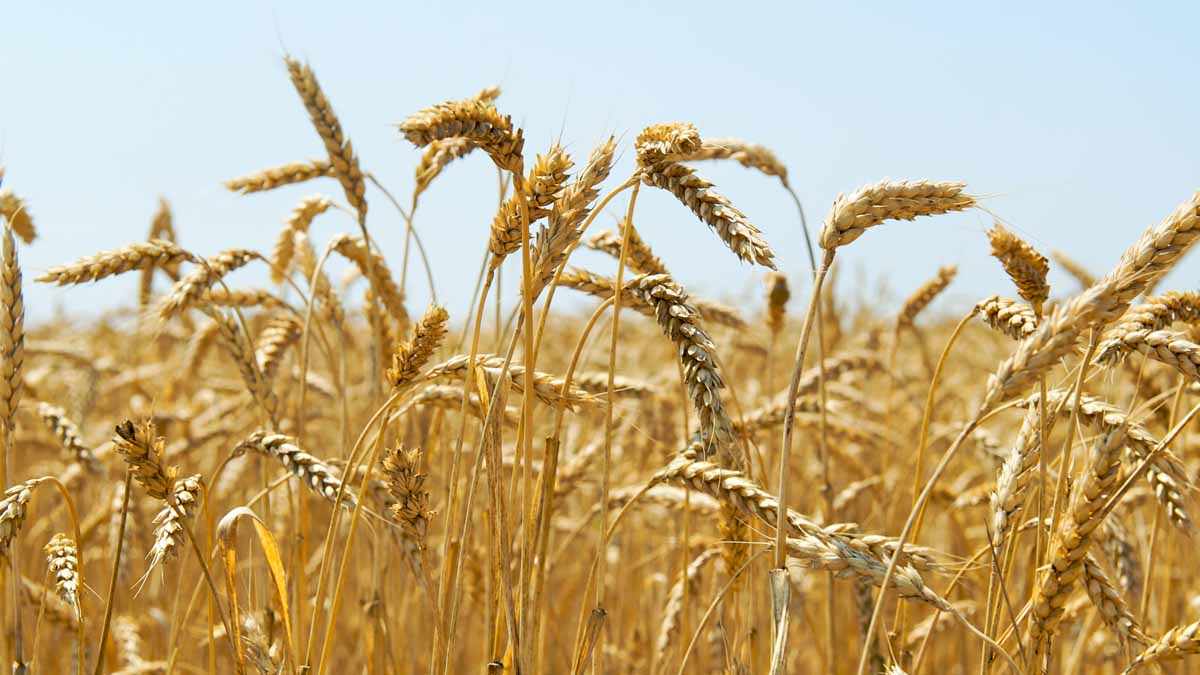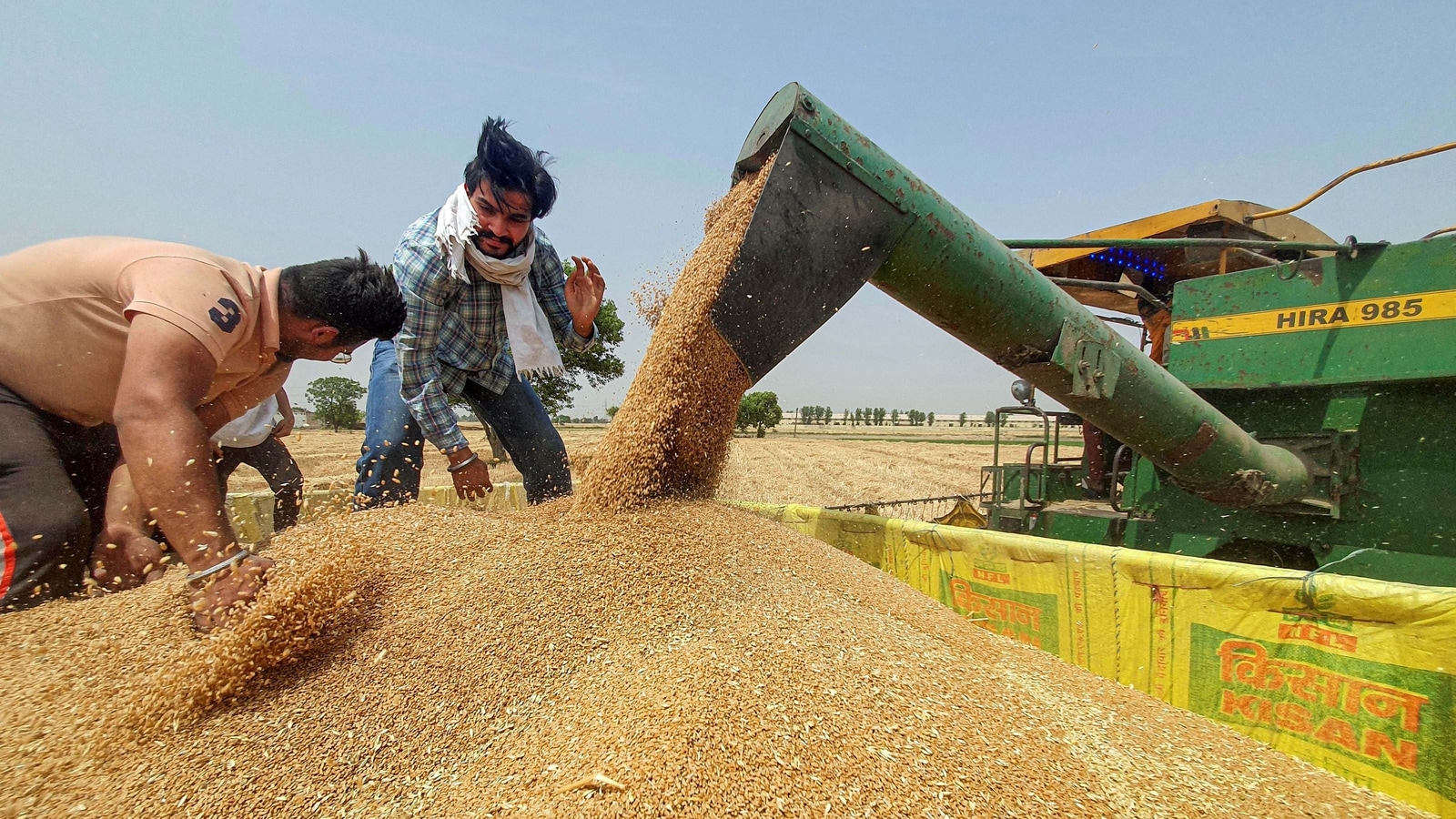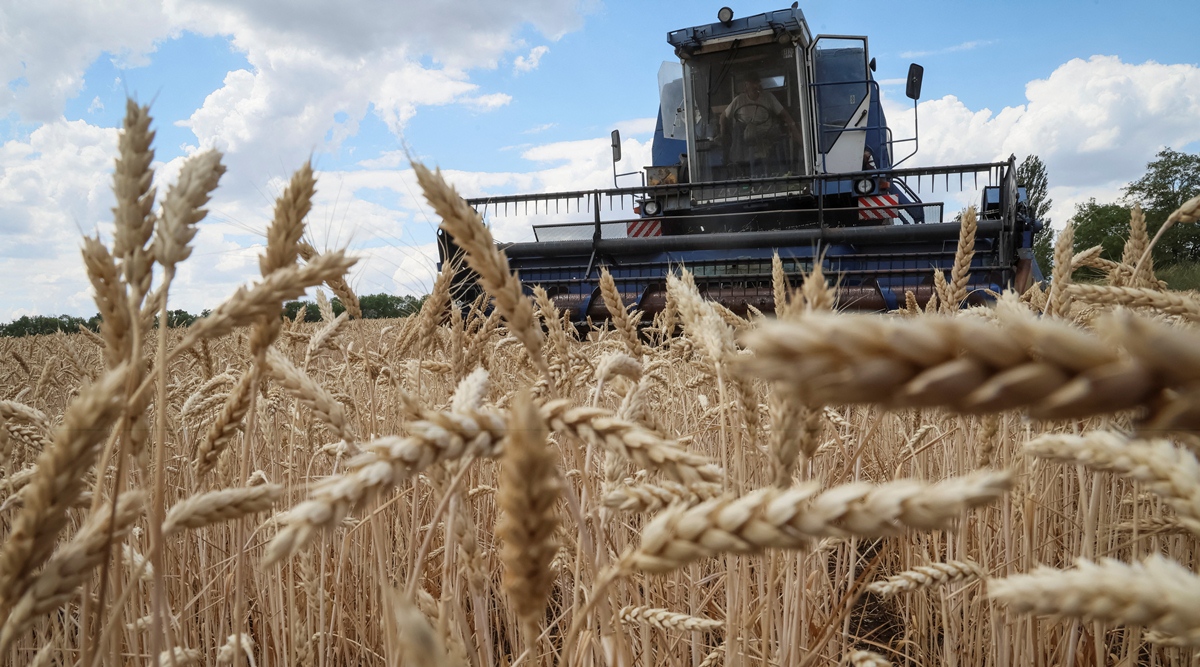Food Secretary’s Insights on Government’s Wheat Stock Limit Reduction Amid Price Surge 2023

Food Secretary’s Insights on Government’s Wheat Stock Limit Reduction Amid Price Surge 2023
In a bid to combat rising food prices and ensure food security for its citizens, the government has taken a significant step by further reducing stock limits on wheat traders, wholesalers, and retailers.
The decision, announced by the Food Secretary, comes as a response to the recent surge in wheat prices that have been causing concern among consumers and policymakers alike. This article will delve into the specifics of this decision, its implications, and the broader context surrounding it.

To regulate wheat prices, which are exhibiting an upsurge once more after being stable for some time, the government on Thursday further decreased the stock limit for wheat merchants, wholesalers, and large chain stores to 2,000 tonnes from 3,000 tonnes with immediate effect.
The limit on wheat dealers’ and wholesalers’ stock holdings was 3,000 tonnes on June 12; 10 tonnes for retailers; 10 tonnes for each location of large chains of retailers; and 3,000 tonnes for all of their depots. 75% of the installed yearly capacity for processors.
Food Secretary Sanjeev Chopra briefed the media, saying: “Keeping in view of the recent uptick in the prices, we had a review of the stock limits and effective today the stock limit for wheat traders, wholesalers, and big chain retailers stand reduced to 2000 tonne.” The stock restrictions for small merchants and processors are unaltered. According to him, dealers, distributors, and large chain shops have been given a month to reduce their wheat storage levels to 2,000 tonnes.
Wheat is a staple food in many parts of the world, including India. It is a primary source of nutrition for millions of people, making its price and availability crucial for food security.
However, in recent times, wheat prices have been on the rise, driven by various factors such as adverse weather conditions, supply chain disruptions, and increased demand. This surge in prices has raised concerns about affordability and access to this essential food commodity.
To address the rising prices of wheat and ensure that it remains affordable for all segments of society, the Indian government has decided to take measures to control wheat stocks and curb speculative hoarding.

The Food Secretary, who is responsible for overseeing food security and distribution in the country, has announced further reductions in stock limits for wheat traders, wholesalers, and retailers.
The government has mandated that wheat traders, wholesalers, and retailers can now only maintain a limited quantity of wheat in their stocks. This move aims to prevent large-scale hoarding, which can artificially inflate prices.
In an expansion of the previous restrictions, the new policy includes retailers in addition to traders and wholesalers. This inclusion acknowledges that retailers can also play a role in hoarding and price manipulation.
The government has also indicated that it will enhance monitoring and enforcement measures to ensure compliance with the new stock limits. Strict penalties will be imposed on those found violating these limits.
To enhance transparency, the government will require businesses to report their stock levels regularly. This will enable authorities to keep a close eye on stockpiles and take swift action in c ase of violations.
ase of violations.
By curbing hoarding and speculative practices, the government aims to stabilize wheat prices, making it more affordable for consumers.Ensuring an adequate supply of wheat at reasonable prices is essential for food security.
This move reinforces the government’s commitment to this critical aspect of public welfare.The reduction in stock limits is expected to promote market efficiency by discouraging artificial price inflation and encouraging fair competition among businesses.
Lower wheat prices can provide relief to consumers, especially those from lower-income groups who are more vulnerable to food price fluctuations.Wheat traders, wholesalers, and retailers will need to adapt to the new regulations, which may require changes in their business practices and reporting mechanisms.
The government’s decision to further reduce stock limits on wheat traders, wholesalers, and retailers is a proactive step in addressing the challenges posed by rising wheat prices.

It reflects a commitment to maintaining food security and ensuring that essential commodities remain accessible and affordable to all citizens. While these measures are essential in the short term, the government should also consider long-term strategies to address the root causes of price fluctuations, such as agricultural reforms and supply chain improvements.
Ultimately, a holistic approach that combines short-term interventions with structural reforms will be key to achieving sustainable food security and price stability.




